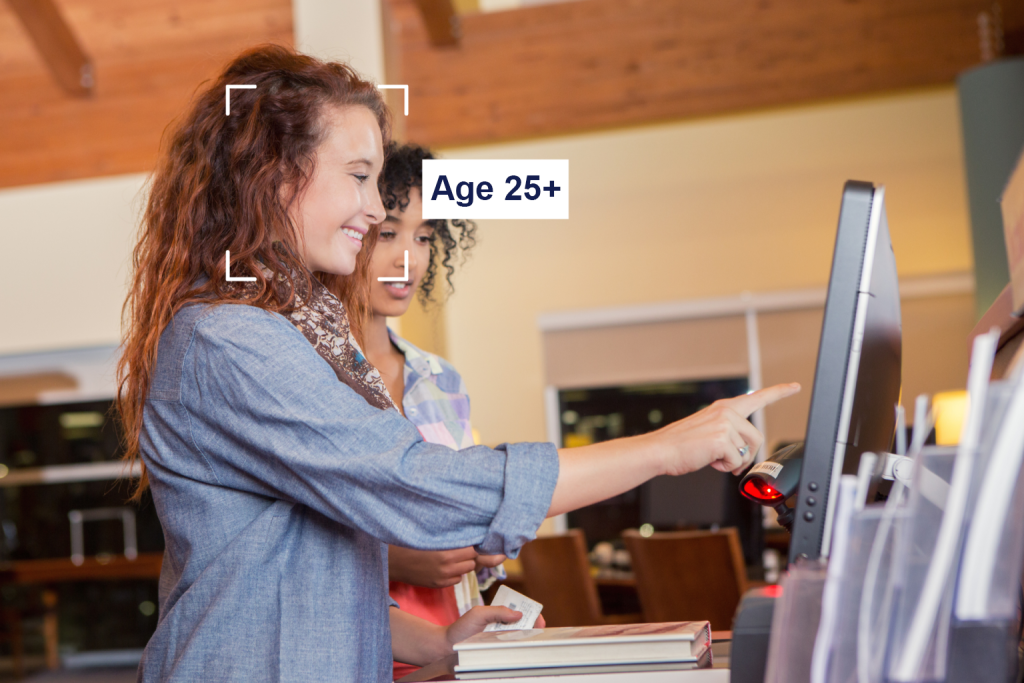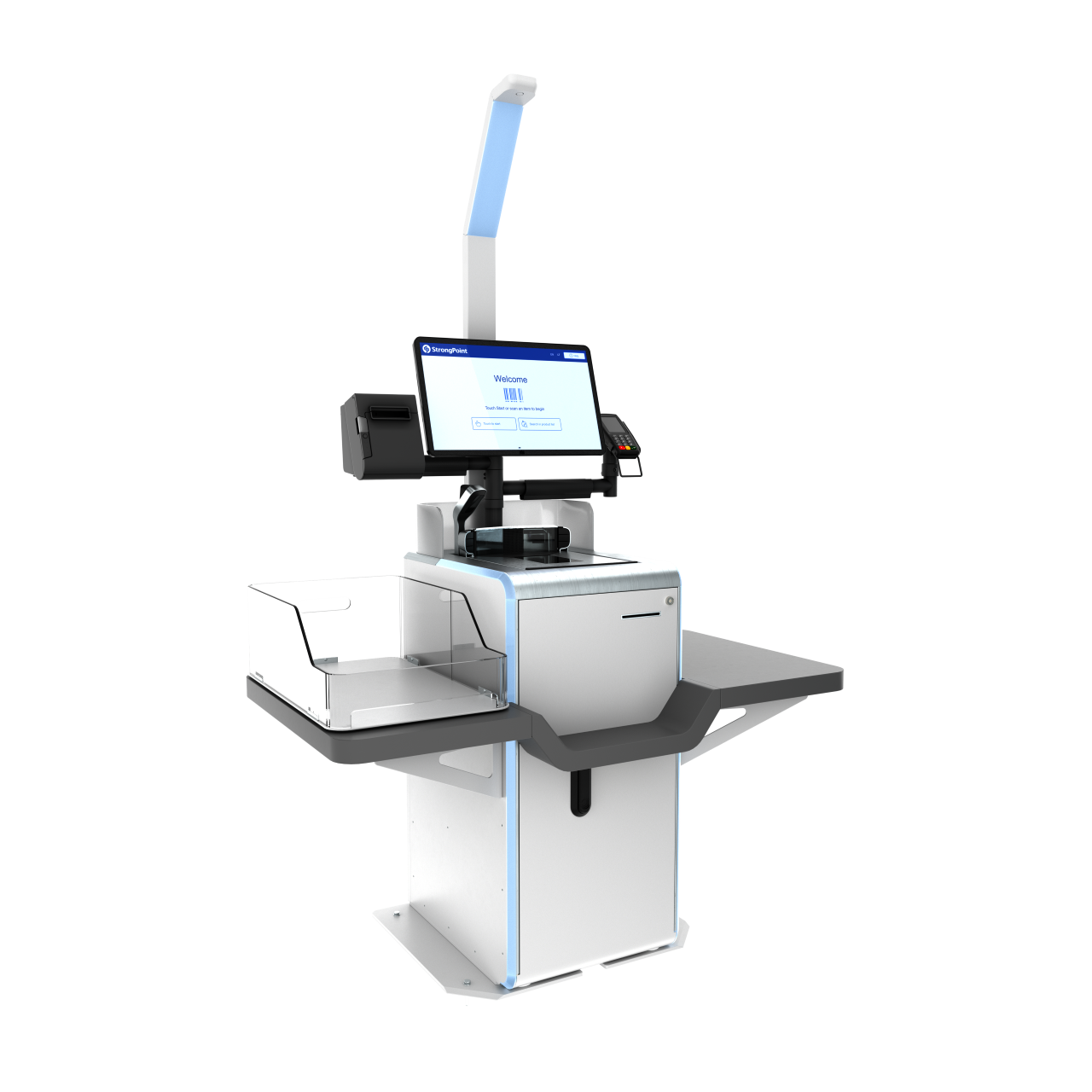StrongPoint Brings AI Age Verification to Grocery Retail in Lithuania
A lot of people prefer self-service checkouts, but they often have to stop and wait for age verification. To reduce customer waiting times and the number of age verifications carried out by employees by more than half, grocery retailer Iki (part of Rewe Group) is currently testing a new solution – an automatic age recognition system based on artificial intelligence (AI). According to Julius Stulpinas, Head of Technology at StrongPoint, practice shows that facial age recognition technology saves time and allows customers to shop without employee assistance in about 8 out of 10 cases.

Nijolė Kvietkauskaitė, CEO of IKI Lithuania, says that typically about 40% of all interventions at self-checkouts are related to age verification. With the smart AI system, at least 60% of such cases can be automated, reducing the total number of staff calls by about a third. This allows them to spend more time helping customers or doing other tasks.
“Automatic face recognition technology reduces the age verification process at self-checkouts from an average of 30 seconds to less than 10 seconds. This solution reduces queues, speeds up the shopping process, and allows employees to focus on more meaningful tasks. This shows how smart technologies can subtly, but significantly, improve our daily experience, turning previously annoying moments into completely unnoticeable ones,” says Julius Stulpinas, Head of Technology at StrongPoint, which implemented the solution.
Shoppers spend up to 200,000 hours a year confirming their age
The retail chain IKI, which was the first to introduce self-checkouts in Lithuania 17 years ago, is also the first one to test this technology. Self-checkout with AI functionality to verify the customer’s age when purchasing age-restricted items has been installed in a store located at Pilaitės pr. 42 in Vilnius.
During the four-week pilot project, a unique self-checkout system will be in operation. This system is currently designed solely for testing the technology and not for actual shopping. According to N. Kvietkauskaitė, this test aims to evaluate how the technology works in real-life conditions.
“Our mission is to make everyday life easier, so we are constantly thinking about how to help our customers shop as smoothly as possible. Automatic face recognition technology can help reduce the checkout process at self-service checkouts by more than 20 seconds, which is a significant improvement in the shopping experience. We are constantly investing in innovation because it allows us to test and select technologies that fundamentally change the retail business. With this pilot project, we are testing how shoppers can shop even faster at self-checkouts, while ensuring the responsible sale of age-restricted products without the involvement of additional staff. We are streamlining our daily processes to ensure a modern and pleasant shopping environment for our customers,” says N. Kvietkauskaitė.
Every year, IKI self-checkouts handle around 55 million employee interventions. Customers spend around 200,000 hours a year just waiting for an employee to confirm their age. It is estimated that AI-based age verification technology could reduce the total number of interventions by around a quarter. According to N. Kvietkauskaitė, the solution being tested would allow employees to focus on more meaningful tasks, such as serving customers, restocking shelves, assisting at both regular and self-checkouts, or otherwise improving the shopping experience for customers.
“Our mission is to make everyday life easier, so we are constantly thinking about how to help our customers shop as smoothly as possible. Automatic face recognition technology can help reduce the checkout process at self-service checkouts by more than 20 seconds, which is a significant improvement in the shopping experience”.
Nijolė Kvietkauskaitė, CEO of IKI Lithuania
More accurate than a human
Algorithms and AI work more accurately than humans, so if you can’t fool a human, you’re unlikely to fool the system. The automatic age verification system does not guess. The system will never say that the age is more or less accurate — it works precisely. An additional “buffer” is applied to younger people, but for everyone aged 25 or above the system automatically confirms their age.
“The solution recognizes whether a live person is standing in front of the camera or whether the buyer is trying to cheat the system, for example, by showing a photo of an older person on their phone. AI analyzes not only the face but also the environment — it monitors whether it is changing naturally or whether it is, for example, a static background or a hand holding a phone. If it determines that there is no living person in front of the camera, the age is not confirmed, and an employee is called. So attempts to trick AI with a fake beard, glasses, makeup, or a photo simply won’t work,” explains Julius Stulpinas.
Focusing on data security and privacy
The AI-based age verification solution, which is currently being tested in Lithuania, stands out for its advanced and particularly secure architecture. All age verification actions are performed directly on the device itself – facial images are not sent anywhere and are not stored.
“This means that neither the photos nor any data related to them leave the device. In Estonia, for example, facial data is first converted into so-called ‘points’ and sent to a cloud-based algorithm that determines whether the person meets the minimum age requirement. In the test being conducted in Lithuania, all analysis takes place locally, inside the device. This completely eliminates the risk of data transfer and ensures maximum privacy,” says Stulpinas.
Julius Stulpinas, Head of Technology at StrongPoint
The entire process takes just a few seconds. With the customer’s consent, their facial profile is scanned at a special IKI self-checkout. Once the result is displayed, all information is immediately deleted. The algorithm runs directly on the self-checkout computer – no data is stored or sent elsewhere.
According to him, the AI solution being tested in Lithuania could theoretically work even without an internet connection. In other words, not only is the data not sent, but no digital footprint is left behind at all.
Learn more about self-checkout from StrongPoint

Self-Checkout
There is a clear trend toward more checkout options and flexibility in retail today. Retailers look for combinations of regular tills, self-scanning systems and self-checkout to better fit their individual store layouts and concepts. At the same time, there is a growing demand for self-service options among shoppers. With StrongPoint’s self-checkout solution you get a fast, highly user-friendly solution with AI item recognition. That means less queues, faster checkout and happier customers.
Learn more